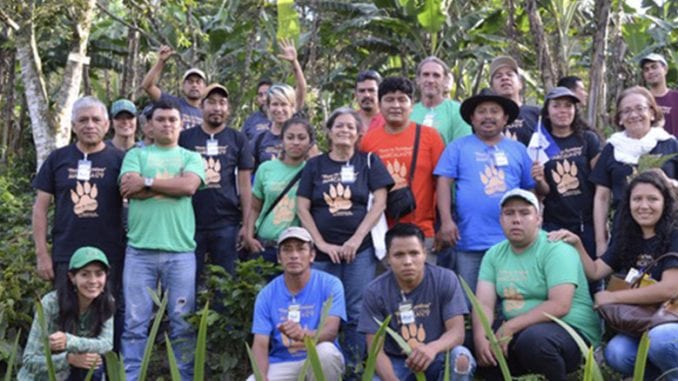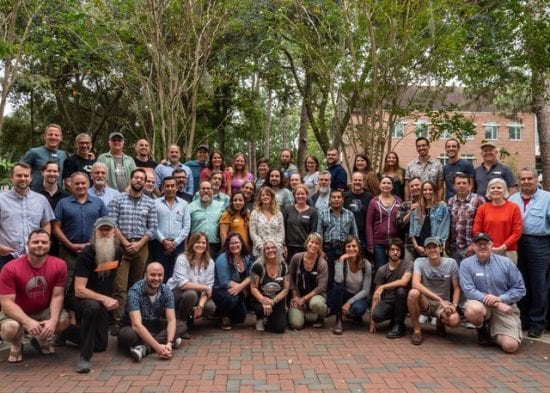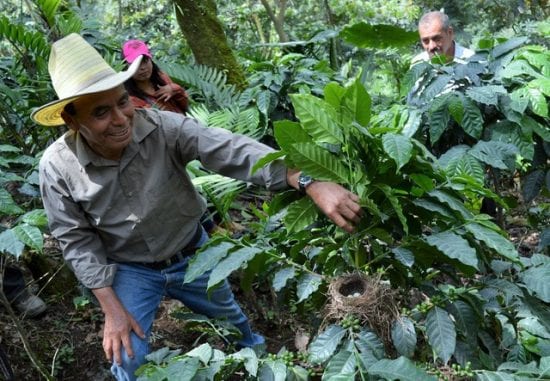
Cooperative Coffees, winner of the SCA’s Business Model Sustainability Award, is raising the bar for importing fairly traded organic coffees.
BY MARK VAN STREEFKERK
SPECIAL TO BARISTA MAGAZINE ONLINE
Photos courtesy of Cooperative Coffees
The Specialty Coffee Association’s winners for this year’s SCA Sustainability Awards were announced during the virtual Re:co Symposium on July 16. The Sustainability Awards are given in three categories: Project, Business Model, and Sustainability Champion. Cooperative Coffees, an importer of fair trade and organic coffees, was awarded in the Business Model category.

Ed Canty, general manager of Cooperative Coffees, found out about the award in February, ahead of the SCA Expo slated for Portland in April that was later canceled due to COVID-19. “This acknowledgement made me extremely proud of Cooperative Coffees, the work of our staff, and the support of our membership. As a cooperative of roasters, we focus our efforts on providing green coffee and services to our members. So the coffee industry at large is not familiar with us. We wanted to change that, and this award is a great way to get our name out there,” Ed says.
Cooperative Coffees officially began in 1999 and now boasts 23 roaster-members, primarily based in the South and Southeast U.S. Fifty-seven percent of leadership positions within Cooperative Coffees are women. A certified B Corporation, the cooperative’s importing model works with 24 producer partners in Latin America, Asia, and Africa. Cooperative Coffees’ core values inform their philosophy and practice: Always Fair, Truth and Transparency, Human Connections with Big Heart, Community through Cooperation, and Passion for the Cause. “Our values keep us on the right path as we make decisions both big and small,” Ed says.
Cooperative Coffees is committed to treating everyone on the supply chain fairly, and transparency is an indicator of that, documented in their annual reports. “Our goal is to set the standard for transparency in the coffee industry,” Ed says, noting that even before working for Cooperative, he relied on their “fairtradeproof.org website to research producer contracts and justify paying higher prices.”

When it comes to their impact on producer partners, Cooperative aims for sustainable and regenerative connections. “Producer organizations have made it clear to us that being a great trading partner and supporting their own efforts to improve the livelihoods of producers should be our primary focus. So we hold ourselves accountable to paying [the] fairest prices and focusing on long-term relationships with some of the best producer cooperatives out there. However, some things cannot be fixed through trade alone. This is where the word ‘regenerative’ comes in. Naturally, the word aligns with our support of work to build up the microbial health of soils as part of our Carbon, Climate, and Coffee program. Three cents/pound on every coffee sale goes into a fund to support this,” Ed says. “Regenerative also speaks to understanding and playing our part in building back producer infrastructure eroded by decades of volatile prices and below-production-cost contracting in this industry.”
Listening to producer partners’ needs during COVID-19, which include food insecurity and lack of medical supplies, roaster-members have supported a total of $128,000 in pandemic relief funds sent to 18 of their partners.
Looking to the future, Ed wants to see more roasters become part of Cooperative Coffees, the more diverse the board the better, and of course, grow their market.
“The top challenge always highlighted to us by our producer partners is the need to sell more coffee under equitable terms. So to be the best partner we can be to them, we need to find additional channels to sell their coffee,” Ed says.

ABOUT THE AUTHOR
Mark Van Streefkerk is Barista Magazine’s social media content developer and a frequent contributor. He is also a freelance writer, social media manager, and novelist based out of Seattle. If Mark isn’t writing, he’s probably biking to his favorite vegan restaurant. Find out more on his website.
